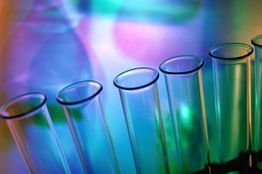
The new TB screening strategy looks fortelltale antibodies in the blood that are found only when a person is fighting off active TB.
Singapore: More than 20,000 people in Pakistan are being tested for the potentially deadly stage of tuberculosis using a new strategy developed at UC Davis Health System, US, to effectively detect the disease in children for the first time.
At least 600 million people in Pakistan, India and Bangladesh are infected with the tuberculosis bacterium Mycobacterium tuberculosis. Each year, at least three million people reach the potentially deadly stage called active TB. The condition is treatable with antibiotics, but conventional tests inevitably miss more than one out of three active cases. About 400,000 die from the disease in South Asia every year.
The new TB screening strategy looks fortelltale antibodies in the blood that are found only when a person is fighting off active TB. In conventional screening, a laboratory worker must identify the bacterium in a sputum sample observed under a microscope. This century-old test rarely picks up more than 50 percent of active cases of lung TB. The new antibody test is expected to detect about 80 percent of active cases.
The new test requires a few drops of a blood sample and takes two hours to provide results, while the sputum microscopy test requires three sputum samples collected over three days. The speed of the antibody screening means that many millions more people could be screened worldwide per year, according to researchers.
The new strategy is based on an FDA-approved diagnostic instrument. Its application to detect TB antibodies was developed by UC Davis Medical Center scientists in collaboration with colleagues in Pakistan. Preliminary trials funded by the US Agency for International Development (USAID) were reported in the journal Clinical and Vaccine Immunology. The new, large-scale research trial is funded by USAID and the World Health Organization (WHO). Another grant awarded in July 2013 sponsored by the US State Department and USAID will focus on developing and commercializing the TB diagnostic test in collaboration the Forman Christian College in Pakistan.
Part of the limitation of conventional screening lies in the use of sputum samples themselves. Children have difficulty providing a sputum sample, and so are often missed in TB screening. Also, TB can be inactive in the lungs but active in other organs and tissues. These cases too are missed by sputum screening. The two undetectable groups account for at least 20 percent of all active TB cases.
Because the antibody test relies on a blood sample, these vulnerable individuals can be picked up efficiently for the first time, said Mr Imran Khan, assistant professor in the Department of Pathology and Laboratory Medicine, and Center for Comparative Medicine at the UC Davis Medical Center. Mr Khan led development of the screening technique along with colleague Mr Paul Luciw, a professor in the same department.
Preliminary studies have shown that the antibody test can detect active TB in about four out of every five cases picked up by the sputum microscopy test. It can also detect four out of five active cases that the sputum test misses. So, overall, it can identify about 80 percent of active cases compared with 50 percent for the sputum test. The initial cost of the antibody testing machines are higher than current assays, but the technology allows for so many more people to be tested, that the cost per patient would be about the same when used on a large scale, Mr Khan said.
A second diagnostic technique currently used in some South Asian clinics allows sputum samples to grow in cultures before they are examined. It offers greater sensitivity than the standard test, but because the TB bacterium grows slowly, this test can take two months.
"The fast turn-around time of the new antibody diagnostic test, in combination with high number of patients who can be tested, should enable millions of more TB patients to be screened," Mr Khan said. "As a result, effective treatment can be provided in a more timely fashion to reduce the spread of this deadly disease," he added.
The antibody test was designed to be compatible with an existing "high throughput" screening system so that it could be put to practical use quickly, Mr Khan explained. The screening instrument, developed by Luminex Corporation, is already used in other clinical lab screening settings. The TB screening system can analyze about 100 TB patient samples in two hours.




